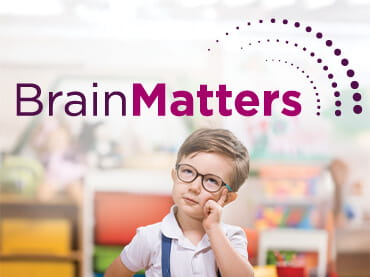- Find a Provider
- Locations
-
Services
- Specialties and Services
- See All Services
Specialties and ServicesBehavioral Health Care Coordination Check In Faster COVID-19 Vaccine Dermatology Driver’s Physical Express Care Flu Vaccine Services Fluoride VarnishLactation Consulting Newborn Care Nutrition Services Online Scheduling Patient Portals Primary Care Medical Home ImPACT® Testing ResearchSame-day Sick Appointments Sports Physicals Substance Use Education Teen Resources Transition to Adulthood Video Visits Walk-in Services Weight Management - Health Resources
-
About Us
- About UPMC CCP
- Patient Resources
About UPMC Children's Community Pediatrics
From “How Was Your Day?” to Real Connection: Strengthening Bonds with Your Child
If you’ve ever asked your child “How was your day?” only to get a shrug or a one-word answer, you’re not alone. Between busy schedules, school stress, and the constant pull of screens, finding meaningful ways to connect with your kids can feel like an uphill climb. But here’s the good news: even small, intentional moments of connection can have a big impact on your child’s mental health, emotional well-being, and sense of security.
Why Connection Matters
Children are constantly learning how to navigate the world — and they need a safe, understanding space to process their experiences. When kids feel connected to their parents or guardians, they’re more likely to:
- Share their thoughts and feelings openly.
- Build resilience when faced with challenges.
- Develop stronger emotional regulation skills.
- Form healthy relationships outside the home.
Research shows that a strong parent-child bond can have a positive impact on brain development.
Practical Ways to Connect with Your Child
You don’t need grand gestures to build connection. Here are a few strategies you can start today:
Create tech-free zones and times
Whether it’s during dinner, a car ride, or bedtime, dedicate moments each day when devices are put away and attention is on each other.
Be curious, not just concerned
Ask open-ended questions like, “What was the funniest thing that happened today?” or “What made you proud today?” These invite conversation instead of shutting it down.
Meet them where they are
If your teen loves drawing, join them at the table with your own sketchpad. If your child is into sports, toss a ball around while you talk. Connection grows in shared experiences.
Validate their feelings — even the big, messy ones
Instead of jumping to solve a problem, acknowledge how they feel first: “That sounds frustrating. I can see why you’re upset.”
Model emotional regulation
Kids learn how to handle emotions by watching you. If you’re stressed, take a deep breath before responding. This shows them that it’s okay to pause before reacting.
When we slow down, listen, and truly connect, we give our kids more than just our time — we give them the foundation for emotional strength and lifelong resilience.
Guidance for Growing Minds
At UPMC Children’s Community Pediatrics, we’re passionate about helping families understand the incredible journey of brain development. That’s why we created Brain Matters—a program offering expert guidance, parenting resources, and tools to support your child’s brain health from infancy through the teen years.
Explore Brain Matters today.





